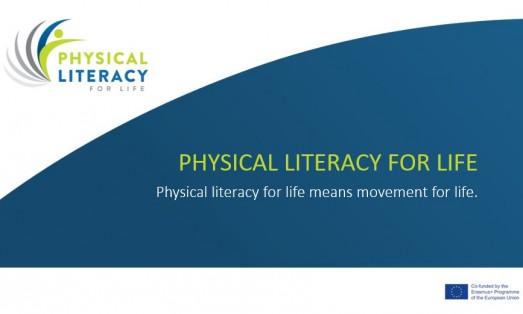New study reveals vast differences in how physical literacy is defined across the world
09/06/2020

The task of defining and establishing physical literacy as a world-renowned concept has stimulated a growing body of research over the past 20 years, as well as projects such as ISCA’s EU-supported Physical Literacy for Life (PL4L). But rather than arriving at a common understanding of the concept, researchers in English-speaking countries have published vastly different definitions and interpretations. Peer-reviewed literature on physical literacy is also lacking in other languages, PL4L partners have found in a new paper published in Prospects journal.
The Physical Literacy for Life project partners have gathered twice online during the Covid-19 lockdowns for full partner meetings to work together on mapping literature, definitions and perspectives on physical literacy to help bring us further towards a common understanding of the topic.
The new Prospects article, ‘International approaches to the definition, philosophical tenets, and core elements of physical literacy: A scoping review’, led by PL4L partner the University of Lisbon (Portugal), has been in the making since 2018, which underlines that this is not an easy task.
“This paper was an outcome of a previous research project about physical literacy,” lead researcher João Martins says. “We have been working on this since the beginning of 2018. So it can make an important contribution to Intellectual Output 1 of the Physical Literacy for Life project.”
The paper takes a critical look at how the definition of physical literacy (PL) has evolved since Margaret Whitehead published her pioneering definition in 2001. It contrasts Whitehead’s definition with its subsequent revisions and 12 more formulations coming from the UK, Canada, the US, Australia and New Zealand.
It compares these with how nine other countries have approach the concept, drawing on perspectives from the authors’ countries – including several PL4L partners: João Martins, Marcos Onofre, João Mota (University of Lisbon), Chris Murphy, Rose Marie Repond (EUPEA), Helen Vost (Youth Sport Trust International), Bruno Cremosini, Andjelko Svrdlim, Mojca Markovic (SUS) and Dean Dudley (Macquarie University).
They note that “the sources stem mainly from organisations and researchers from English-speaking countries. [Although there are] some groups and researchers from other countries working on the development of PL … the work conducted in these countries lacks peer-reviewed published literature.”
A particular challenge revealed in the study is to find a balance between seeing physical literacy as being connected to developing motor skills, physical ability and competences, and being about developing the confidence and motivation to keep active throughout the life course. The complex interplay between physical, psychological, social, cognitive and behavioural factors suggest that a combination of learning fundamental physical movements, enjoying moving and appreciating how movement can enrich one’s life could be key to triggering this lifelong motivation.
Their conclusion is that “defining a PL framework for European, African, Asian and South American contexts is an important next step for moving PL forward”. While it is beyond the scope of the Erasmus+ supported Physical Literacy for Life project to deliver a framework for African, Asian and South American countries, a framework for European countries is under way and the partners hope that the cross-sector nature and diverse networks of their organisations will extend the project’s reach even further beyond European borders.
Access the article here and feel free to contact João Martins for more information.
Visit the Physical Literacy for Life website
Read more by our Physical Literacy for Life partner Macquarie University, Department of Education Studies (Australia): ‘Physical Literacy, Physical Activity and Health: Toward an Evidence Informed Conceptual Model’, by John Cairney, Dean Dudley, Matthew Kwan, Rheanna Bulten, Dean Kriellaars
By Rachel Payne, ISCA
Posted on 09/06/2020 by Rachel Payne, ISCA

